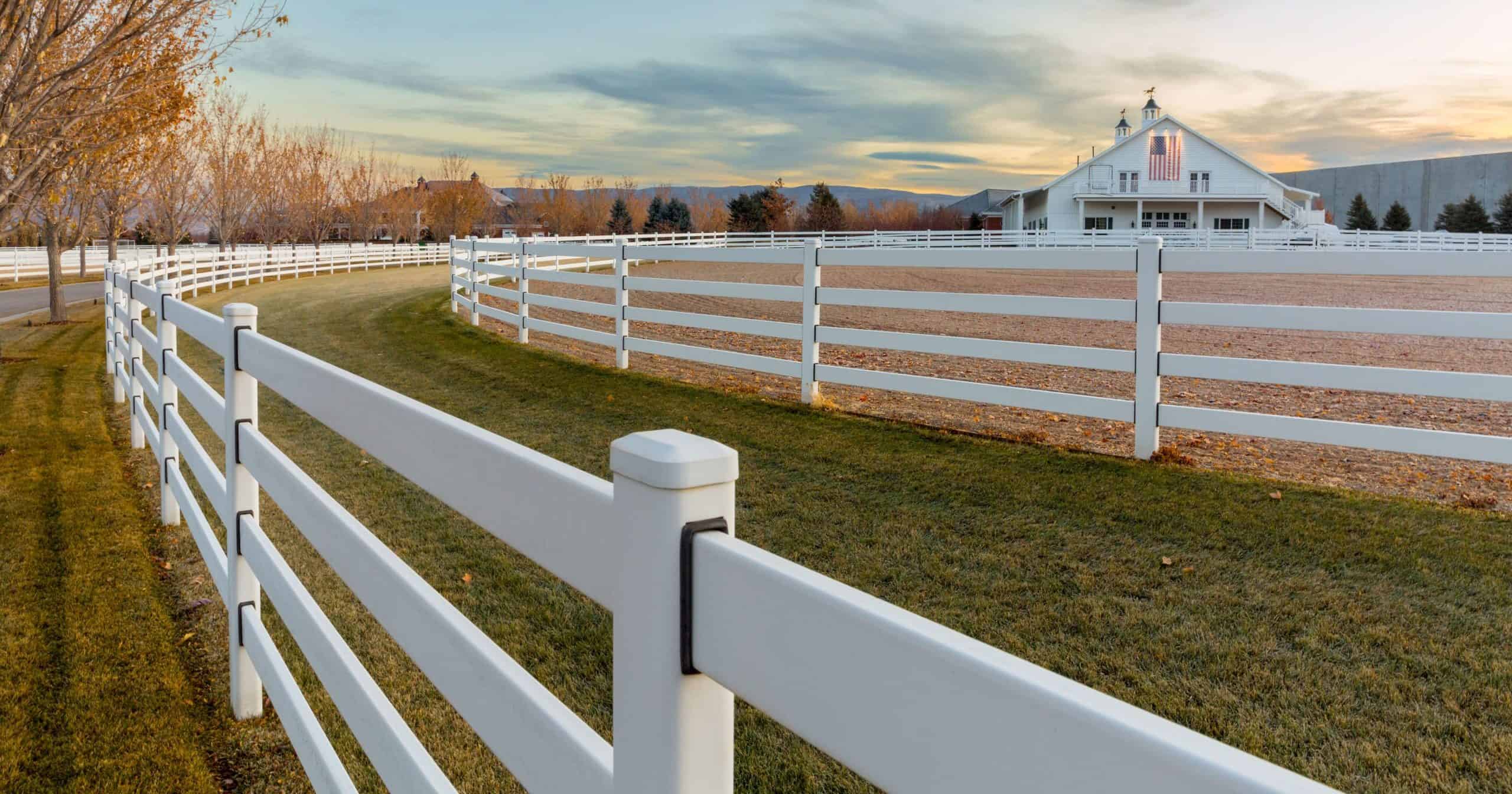Hobby farms may look different than sprawling ranches, but the principles of good fencing remain the same:
- Protect the animals
- Secure the property
- Invest in systems that won’t bleed you dry with constant upkeep
Whether you’re raising a few horses, keeping livestock for personal use, or running a side operation with chickens, goats, or produce, the right fence makes all the difference between peace of mind and daily frustration.
Hobby farms straddle a unique middle ground. They’re more than backyard pens, but they don’t always have the resources of full-scale agricultural operations. That means fencing choices need to strike a balance between affordability, durability, and practicality.
Done right, fencing becomes the backbone of a small farm’s infrastructure—something that adds safety, organization, and long-term value.
What Hobby Farm Owners Need from Fencing
The fencing needs of a hobby farm depend on the land, the livestock, and the goals of the owner. But most hobby farmers share the same core priorities:
- Safety for animals and people
- Low maintenance and easy repair
- Versatility for mixed-use operations
- A clean, professional appearance that adds property value
- Reasonable cost without sacrificing durability
The challenge is finding materials that deliver on those needs without creating a maintenance (or financial) nightmare.
Common Hobby Farm Fencing Mistakes
Before we look at good options, let’s be clear about what doesn’t work long-term.
- Wood fencing looks traditional but requires constant repainting, repair, and replacement. Even treated lumber starts to deteriorate within a decade.
- Cheap wire systems sag, rust, and create hazards for both animals and people. They might work for quick fixes but won’t provide long-term security.
Vinyl fencing often seems attractive for its clean look, but it becomes brittle in cold weather and sags in heat. Cracks and breaks are inevitable. - Barbed wire, while effective for cattle on large acreage, creates unnecessary risk for horses and smaller livestock common on hobby farms.
The Best Hobby Farm Fencing Options
Hobby farmers don’t need endless choices. They need proven solutions that actually work for small-acreage operations.
1. Steel Board Fencing
For hobby farms with horses or high-value livestock, steel board fencing sets the standard. It delivers the safety of wood board fencing with none of the splintering, rot, or constant repainting. Powder-coated galvanized steel provides decades of durability while maintaining a professional appearance. It’s safe for horses thanks to smooth edges and engineered flexibility that absorbs impact.
For hobby farms, this is often the “buy once, cry once” solution that pays dividends for decades.
2. High-Tensile Wire
When installed correctly, high-tensile wire can work for cattle, goats, and multi-species setups. Spring tensioners keep the wire tight through seasonal temperature swings, while quality galvanization protects against rust. It’s lower-cost than board systems but requires proper planning and installation to avoid sagging or injury risks.
3. Electric Fencing (as a supplement)
Electric fencing works well for hobby farms as a secondary containment system or to divide pastures. It’s not a primary barrier for horses or larger animals, but it adds a layer of respect that reduces pressure on permanent fencing. Solar energizers can power small systems efficiently without major infrastructure.
4. Combination Systems
Many hobby farms thrive on versatility. That might mean using steel board fencing for the paddocks closest to the barn, high-tensile wire for larger pastures, and electric lines to manage rotation. Strategic combinations let you balance cost, safety, and durability across your property.
Special Considerations for Hobby Farms
Because hobby farms often serve multiple purposes: livestock, gardens, orchards, and even agritourism. Fencing needs to accommodate more than just animal containment.
- Zoning and neighbors: Hobby farms often exist in semi-rural or peri-urban areas where neighbors and zoning boards have strong opinions. A professional-looking fence helps maintain good relationships and property value.
- Predator control: Chickens, goats, and sheep require fencing that keeps predators out as much as animals in. Mesh systems or electrified netting may supplement permanent perimeter fencing.
- Small acreage management: Every foot of space counts. Well-designed fencing allows rotational grazing, pasture management, and separation of species without wasting ground.
- Aesthetics: Unlike remote ranches, hobby farms often serve as homes as well as working properties. Fencing should look sharp and complement the property, not just function as a barrier.
Cost vs. Longevity
Hobby farmers often weigh their budgets carefully. But cutting corners on fencing nearly always backfires. A wood or vinyl system that needs replacing in 10 years doesn’t cost less—it just spreads the expense into multiple rounds of labor and materials. Long-lasting materials like steel board fencing carry higher upfront costs but pay for themselves in lower maintenance, fewer repairs, and decades of service.
A simple rule holds true: the less time you spend fixing fences, the more time you spend enjoying your farm.
Hobby Farm Fencing That Works for Generations
Hobby farming should be rewarding, not a constant battle with failing infrastructure. The right fencing transforms a small farm from a hobby into a place that works smoothly, safely, and with pride of ownership.
Steel board systems in particular deliver everything a hobby farm needs: safety, appearance, durability, and low maintenance. Combined with thoughtful design and supplemental systems, they create a foundation that supports both the practical and personal goals of small-acreage owners.
The land you’re working might be smaller than a ranch, but it deserves the same respect. Build fencing that stands strong through years of use, protects the animals you care about, and adds lasting value to the property you call home.
Ready to explore fencing that works as hard as you do on your hobby farm? Contact Buckley Fence today to find the solution that fits your land, your animals, and your long-term plans.



